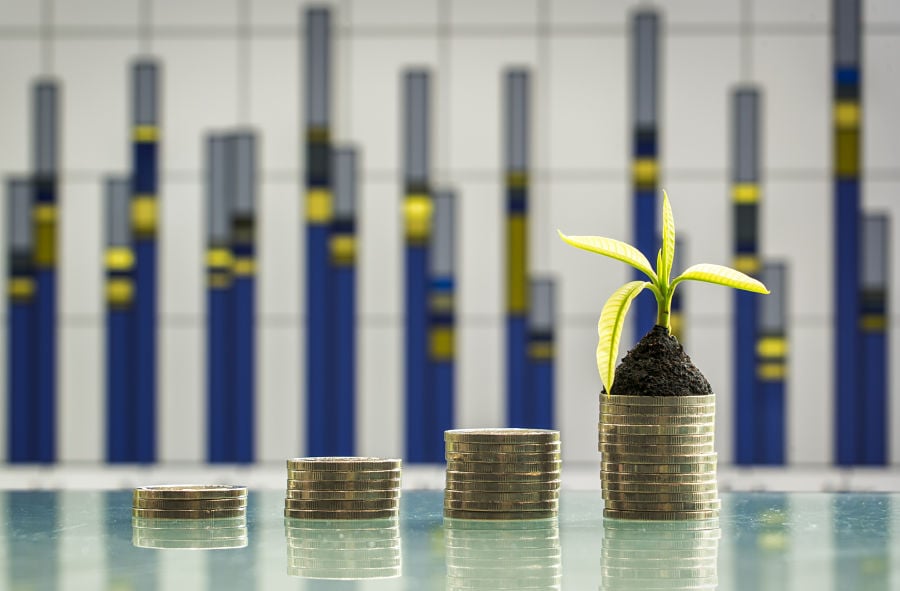

The number of sustainable mutual funds and ETFs on the market skyrocketed in 2021, a report this week from Morningstar shows.
The volume of products increased by 36% during the year, going from to 392 to 534. But an even bigger story might be the acceleration of fund launches — there were 121 in 2021 compared with 73 a year earlier, a 70% increase. There were just 31 fund launches in both 2018 and 2019.
There are a variety of factors behind the explosion in the sustainable funds category, the most basic of which might be a response to demand. But a more favorable regulatory environment, including the Department of Labor reversing Trump-era rules that limited ESG considerations in retirement plans, is also likely a contributor.
And importantly, the market dive in early 2020 appeared to bring some fund firms off the sidelines, said the report’s author, Alyssa Stankiewicz, a sustainability analyst at Morningstar Research.
“Sustainable funds held up much better than their peers during the market sell-off in 2020. That served as a proof of concept for a lot of skeptics,” Stankiewicz said. “A lot of asset managers were hesitant, prior to that, to launch sustainable funds.”
Last year, for example, 56% of sustainable large-blend funds had trailing three-year returns that beat the Russell 1000 Index, compared with 21% among all large-blend funds, the report shows.
The company that brought the most new products to market during the past two years was BlackRock, with its iShares ETFs. Fidelity Investments, Invesco, Janus Henderson and New York Life were also big contributors, Stankiewicz said.
Sustainable funds represented nearly $350 billion in assets at the end of the year, having pulled in more than $70 billion in net sales, a 35% increase from the flows seen in 2020, according to the report. However, those sales accounted for only a small fraction of the total $1 trillion of new money invested in U.S. mutual funds and ETFs last year, Morningstar noted.
There were 17 sustainable funds that liquidated in 2021, and 26 existing products that were changed to become sustainable, according to Morningstar. While the number of non-sustainable funds that changed to sustainable ones in 2020 was also 26, those figures are double those for repurposed funds in both 2018 and 2019.
The biggest fund to convert was the $8.4 billion Pioneer Fund, a 94-year-old product that incorporated ESG in July. The next largest was American Century’s $1.1 billion Balanced Fund, which made the change more than a year ago.
The funds included in the report are those that have obvious sustainable bents and have prospectuses that “leave no doubt that ESG concerns figure prominently in the investment process.”
Last year continued a trend toward passive strategies, which now account for about 40% of U.S. mutual funds and ETFs, up from just 19% three years ago, the report noted. Most products, 70%, are actively managed, but that figure will likely decrease as a result of the demand for low funds with lower fees and their inclusion in model portfolios, Morningstar reported.
Sustainable funds tend to carry higher price tags, with average asset-weighted expense ratios of 61 basis points as of 2020, compared with 41 bps among peer funds, according to a fee report Morningstar issued last year.
As products and assets shift to passive management, fund providers have some opportunities to differentiate themselves, Stankiewicz said.
Some index funds, for example, have progressively changed their carbon-intensity thresholds compared to benchmark levels, lowering them yearly or so, the author said.
More passive funds could also focus on active ownership.
“As the industry matures, investors are looking for solutions that go beyond divesting,” Stankiewicz said. “They’re looking for ways that their investments try to drive change.”
Active managers, meanwhile, are standing out in some cases by going even further, seeking to quantify the ESG risks and impacts, both positive and negative, that the companies they hold are having in their communities, she said. That can be a more doable task for fixed-income funds, with the TIAA-CREF Core Impact Bond being an example, she said.
The industry also has a hurdle to overcome with investors. A separate recent report from Morningstar found a significant gap between how people who were surveyed said they should invest and how they actually invest.
As more and more products appear on the scene, the SEC will almost certainly be keen to discourage greenwashing, Stankiewicz said. Part of that could involve the regulator seeking explanations for discrepancies between a company’s SEC filings and its corporate social responsibility report or emissions commitments, the report noted.
“I’m looking forward to the way that improved disclosure requirements and guidance on taxonomy and language will improve transparency,” she said. “I don’t think there is any greater risk to the mission of sustainable investing than greenwashing.”

The new regional leader brings nearly 25 years of experience as the firm seeks to tap a complex and evolving market.

The latest updates to its recordkeeping platform, including a solution originally developed for one large 20,000-advisor client, take aim at the small to medium-sized business space.

David Lau, founder and CEO of DPL Financial Partners, explains how the RIA boom and product innovation has fueled a slow-burn growth story in annuities.

Crypto investor argues the federal agency's probe, upheld by a federal appeals court, would "strip millions of Americans of meaningful privacy protections."

Meanwhile in Chicago, the wirehouse also lost another $454 million team as a group of defectors moved to Wells Fargo.
Orion's Tom Wilson on delivering coordinated, high-touch service in a world where returns alone no longer set you apart.
Barely a decade old, registered index-linked annuities have quickly surged in popularity, thanks to their unique blend of protection and growth potential—an appealing option for investors looking to chart a steadier course through today's choppy market waters, says Myles Lambert, Brighthouse Financial.
